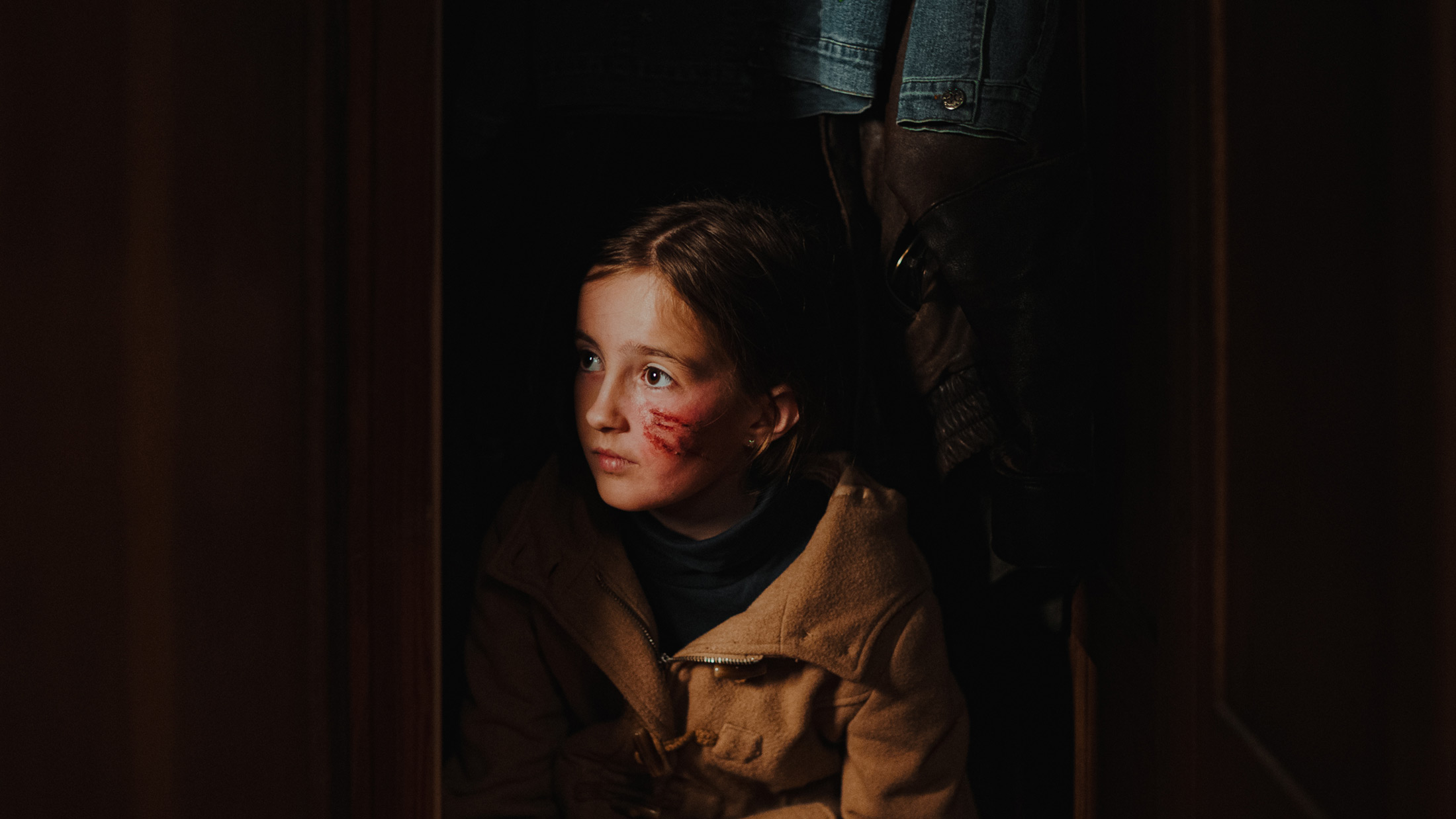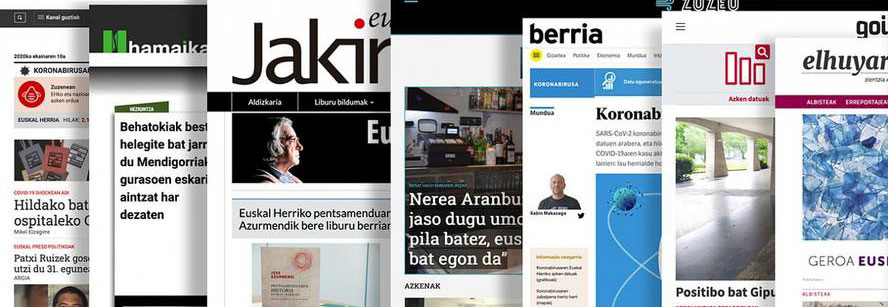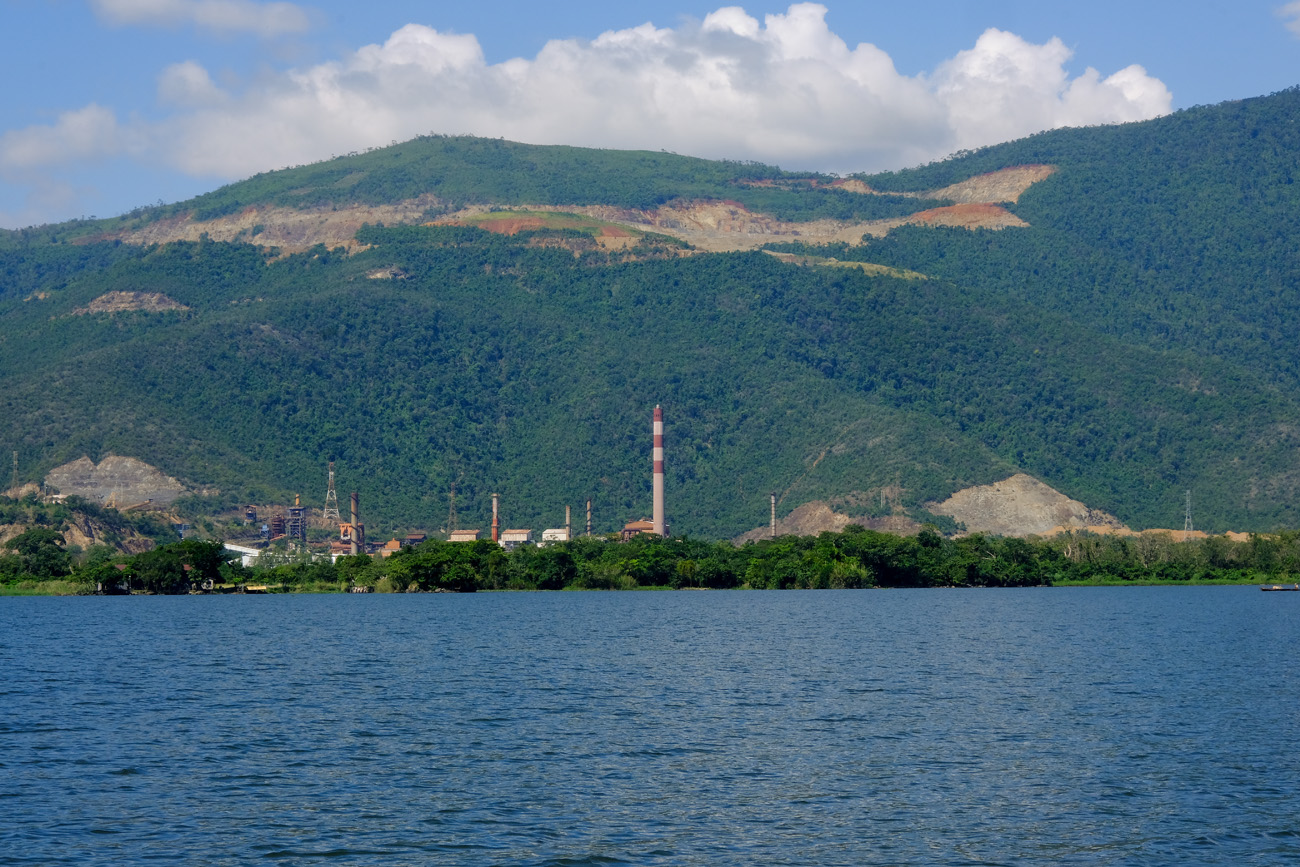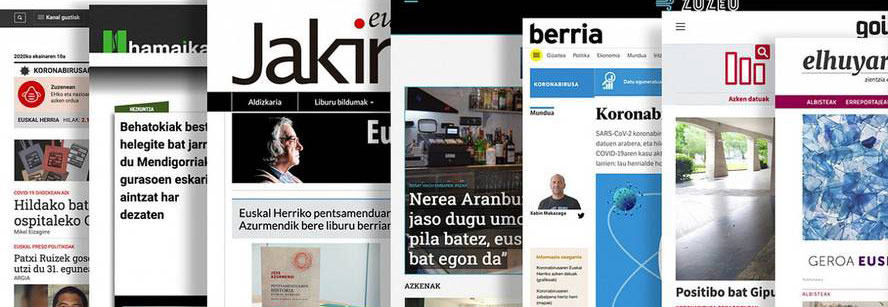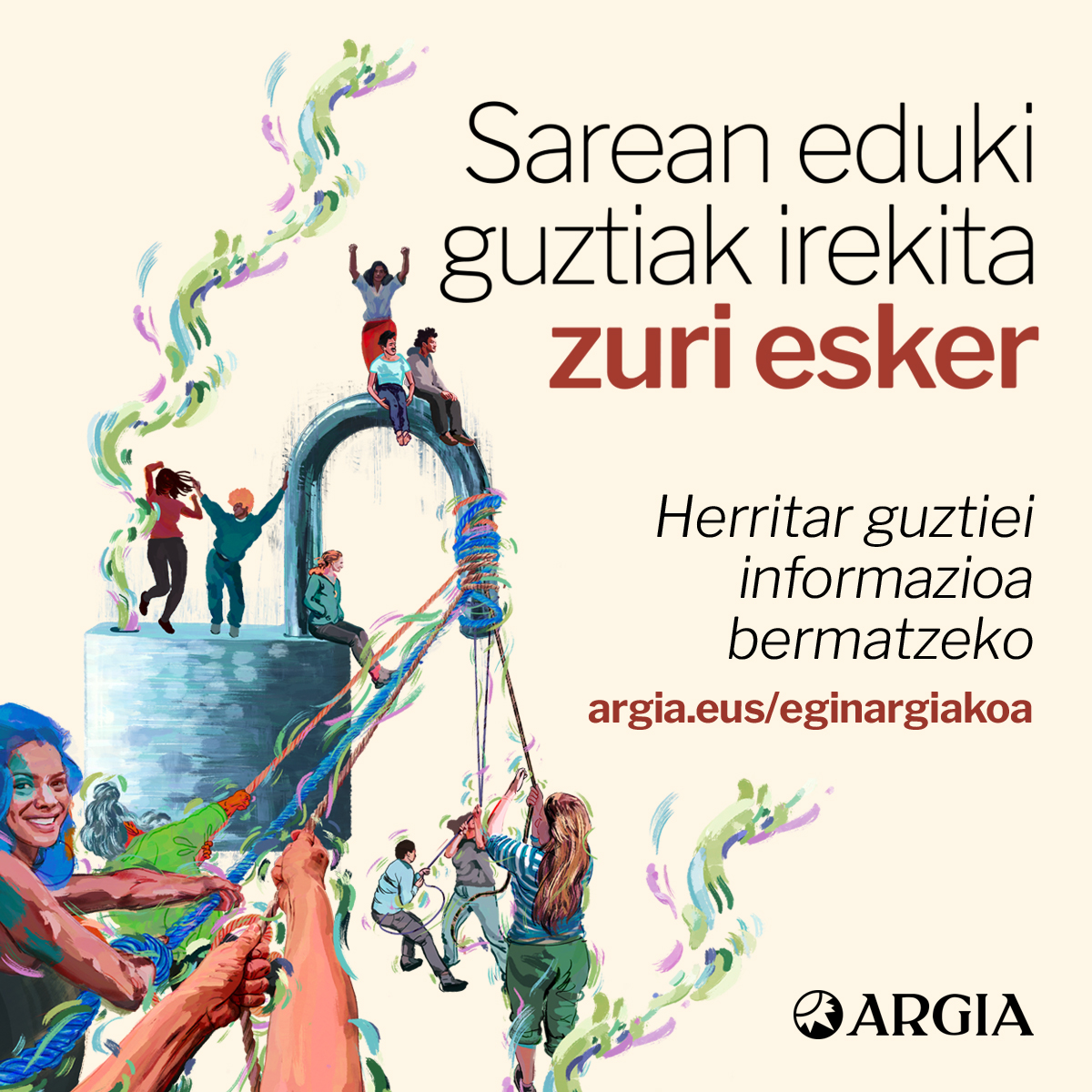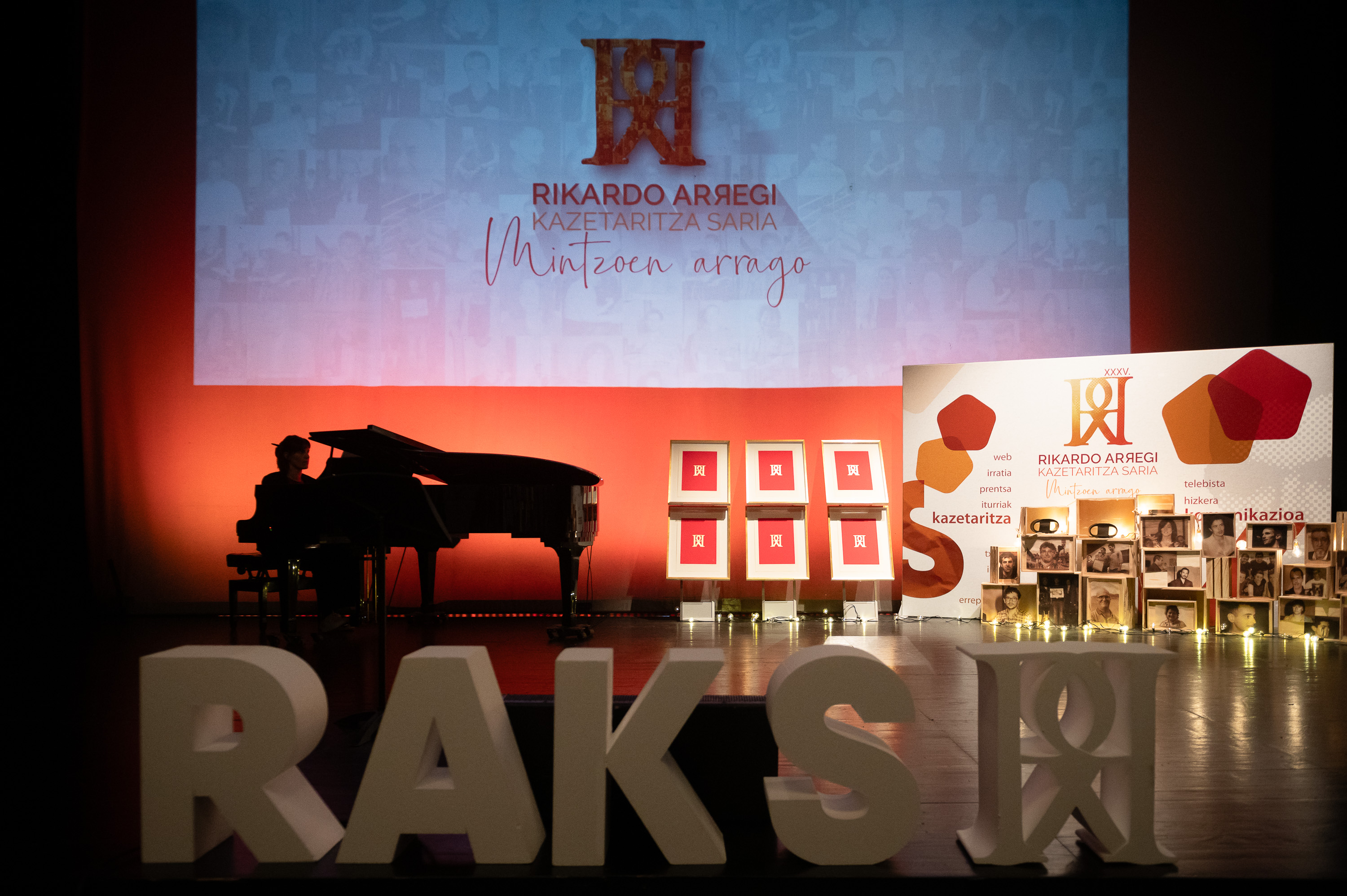"I don't respect the media that lies."
- Ignacio Educativa (Burgos, Spain, 1975) began very young in the world of journalism, collaborating in various major media. He was one of the creators of the Public Journal, as well as the first director of the newspaper, between 2007 and 2009. Following the rupture with the Public eldiario.es, he created in 2012 the digital newspaper, which he has since led. We met him on the campus of San Sebastian at the University of Deusto, after a talk about the light and darkness of journalism before a crowd.

He has just pronounced the conference “Journalism compromised in times of crisis.” Let's define engagement first.
I think the compromised journalistic expression is partly redundant, because journalism has to be compromised by itself. So I define journalism, for which I'm going to join Marty Baron, the director of the Washington Post. He says journalism is to hold the power to account, and I think so too. The function of journalism is the opposite power, to control the powerful at the service of society, contributing to the non-committal abuse. I don't believe in a militant journalist, a journalist who advocates for a cause, because a journalist's primary engagement is not with a cause, but with the truth.
Your answer leads me to ask for other definitions. The first is power.
Power has, above all, two sides: politics and economics. It's easy to find, it's clear where it is. It is the powerful who have the capacity to modify the laws, who can influence the Justice, the judges themselves…
At the conference he said that the media are also a power, so eldiario.es informs other media.
Of course. One of our criteria is that we do not comply with an old standard of this profession: “Dogs don’t eat dogs.” We report journalism and the media because they are the power. And especially because a lot of the things that happen can't be understood without understanding how the media works. The PSOE crisis cannot yet be fully understood if it is not known that Rubalcaba is the advisor to El País and that Felipe González is the Haste group.
You mentioned the search for truth. This is the third and most difficult definition: the truth. The debate about journalism and objectivity is at the center of history.
The problem is that, on the pretext of objectivity, great abuses are hidden. The example I always use is that if you go to a demonstration and say “there are 50,000 people gathered by the organizers” and in the opinion of the police you are acting according to the usual criteria of objectivity: you have not wagered on one, you have given the version of all the sources, etc. But you have two eyes and a subway rope. You can do the measurement and you don't have to be an engineer to know how many people can enter a square meter. That is to be honored. Objectivity is not to give a version of both sides, but to tell the truth; sometimes the knowledge of that truth is not in our hands, but sometimes yes, on other occasions it can be verified using a scientific method: journalism. There's a technique for that.
“The business model in the Spanish press has collapsed and independence with it has been taken”
However, many of the things that are said in the media are not technically verifiable, but they are the result of a previous position.
That is the case for opinion, and I also believe that opinion should be based on data. In any case, in the case of information, we cannot act in this way. As for information, the key is not objectivity, but the focus. There are no technical criteria for this: it is a question of deciding what is important and what is not. That's the editorial line: deciding what you're going to put the magnifying glass on. Then it can happen that what you're looking at is distorted and lies directly to you. I defend the media who have sincerely decided that it is more important to talk about burts than about evictions; it is an editorial criterion, of course, transparent… But I do not respect the media that lie, and some do. Not always, not all the news, but often.
In view of this panorama eldiario.es, you will tell me now that it was essential to create.
We created Eldiario.es because we believed that our work was going to be the only way to do it with full guarantee of independence. When I realized that what I send in a newspaper is not the director, but the master, I decided I had to create eldiario.es. And I decided that the owners of this new newspaper would be the journalists. What has been achieved in recent years (we have benefits, we have moved from the wording of twelve people to that of 72…) shows that we are right.
You have claimed your independence as a means of communication. How is independence measured?
According to four criteria: whether or not the media makes money, whether it has debts, who is the owner and where it draws money to pay salaries. By analyzing these four parameters you realize the problems the press has in Spain. As far as ownership is concerned, almost all the media are now in the hands of banks. They are indebted and highly dependent on the big advertisers and public institutions that control political parties. Finally, they have no profitability, they have losses. And if a newspaper has losses, who pays? Readers? Or are readers becoming tools to compensate for expenses by other means? We are independent because we own the writing, we earn money, especially because we live from the readers and we have no debts. Well, that doesn't guarantee us to be independent, because even if you have all of that, you can agree with the prejudices and pave the way, but at least we have a ratio to make mistakes.
“To be free you have to meet minimum requirements, and that, in this profession, is to be able to pay the salaries of journalists”
You have decided, at least in part, to inform you of your internal accounts and processes, contracts... Once well explained it is very natural. How don't everyone do that?
I believe that many media outlets do not do so because their accounts are not worthy of being shown. We can say that the ratio of the writing wages is 1-3, that we pay the fellows and that work with a tutor for half a day... Draw that into many redactions, the ratio between the highest and smallest wages is 1-100, the owner does not know which bank, the working conditions of the fellows are what they are... So they do in many redactions in Spain, how will they be transparent? We have decided that the only way for readers to trust us is to explain how we are. And that's very important. If you don't have confidence, you can't ask them to pay for a means that's free in itself, and that's our case.
In the future you have said that the paper press will play a role similar to that of vinyl discs today.
In the long run, yes. In fact, a digital medium can do the same as a paper newspaper, but better and cheaper. The costs are much lower and you can update the information at all times, not just once a day. Television finally did not kill the radio star, as television and radio are complementary, and do not replace the other. You can't watch TV while driving the car, or in the shower. And on the radio and on television, you cannot look for concrete news again, as in the newspapers. On the contrary, everything you can do with a paper newspaper can also be done with a digital one. The only attribute left to paper is sentimental: we like to play paper and read along with a beer in the bar. But it has nothing special about functionality, so it will be replaced.

At a time when information is constantly being renewed, speed has become even more important than before. To the detriment of accuracy? And, on the other hand, the media is also asked for depth. Is that where the last strength lies?
Yes, sometimes speed becomes a problem, but in general I think it is an advantage. As far as the depth is concerned, I believe that in the end many paper newspapers will end up becoming weekly, which is what will give the opportunity to deepen. And it's that weekends are when more paper media is sold, and it's logical. Paper is an expensive vice that you can't afford to pay between the week. Expensive from the point of view of time.
You put your head in the centre-left. If journalism, as you have defined before, has to be a counter-power, is right-wing journalism possible?
Of course. Confidential, for example, is a conservative newspaper, owned by journalists, capable of hitting large companies and often doing so. They work honestly, I don't think they do bad journalism. The key is economic independence. The problem is how a newspaper that loses money can be independent. Does anyone have to pay? That is the sin of the current Spanish press: the business model has collapsed and brought independence with it. To be free, you have to meet minimum requirements, and that, in this profession, is to be able to pay the salaries of journalists. If you can't pay through journalism, you'll have to pay through propaganda.
A few months ago you published “Castellanako paperak” along with other media. The documents revealed the tax irregularities of the company and some wealthy people in the Spanish State. As you have just said in your speech, this type of information is not as important as a statement by Messi. Does that hurt you?
Personally, yes. And it also creates sadness that other media doesn't disseminate that information. But readers are very grateful for that. We have a very simple way of measuring it: checking the number of partners we have achieved the previous day. And on the days when we publish this kind of important information, you get lots of partners, people value publishing information of this kind about someone who has a lot of power.
Do we journalists have the capacity to improve society through this kind of information?
I think so. We can be proud of some things. How, for example, has the issue of black cards been affected in Spain? Well, we did that. We are hearing from different sources that corruption has been reduced by the greatest fear of denunciation. Of course, the media has an influence. That is what we are for.
The policy of the Basque Government to criminalise the poor has become news again in November. Lanbide has created an anonymous whistleblower for honest citizens to denounce “any suspicion of irregular actions” from potentially fraudulent citizens receiving Income Guarantee... [+]
Over the past few weeks I have had these two books in my hands: The space of reflection in Basque (Euskaltzaindia, 2024) and Mariano Ferrer, reflexive journalism. Journalism and commitment (Erein, 2023) . I have read that 42.2% of Basques see ETB1 and 20.6% read the Basque... [+]
Over the past few weeks I have had these two books in my hands: The space of reflection in Basque (Euskaltzaindia, 2024) and Mariano Ferrer, reflexive journalism. Journalism and commitment (Erein, 2023) . I have read that 42.2% of Basques see ETB1 and 20.6% read the Basque... [+]















